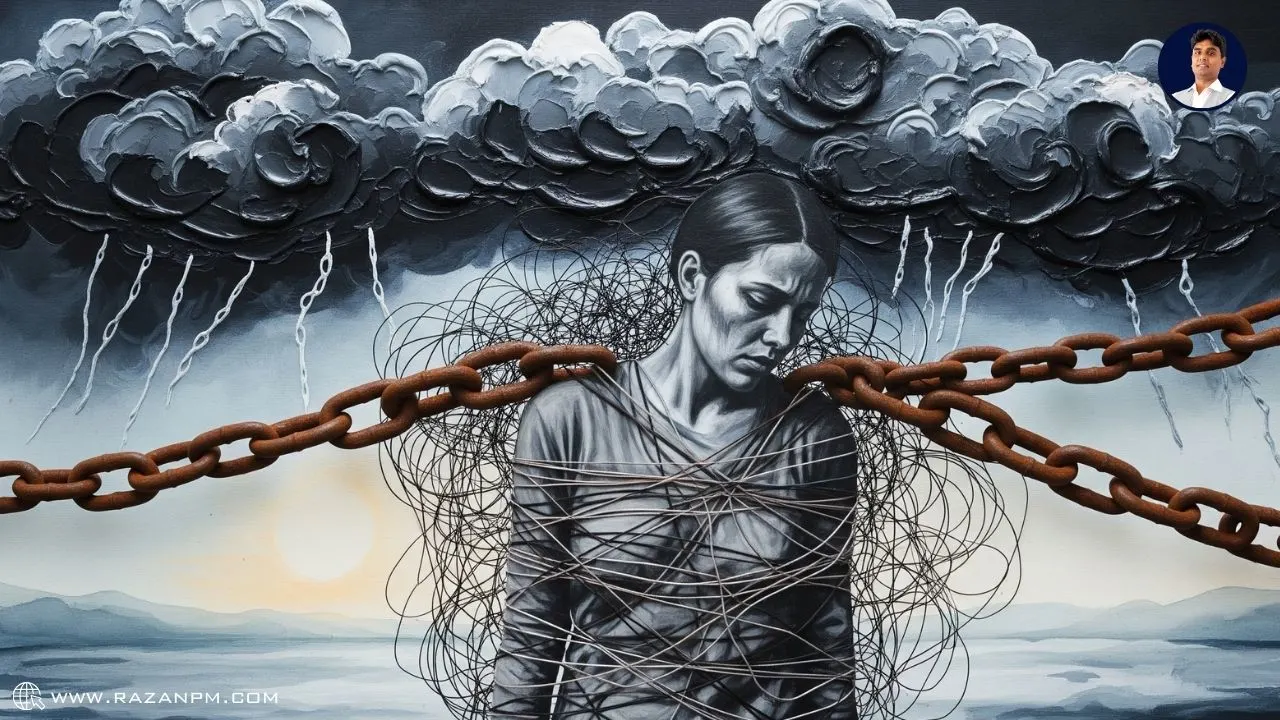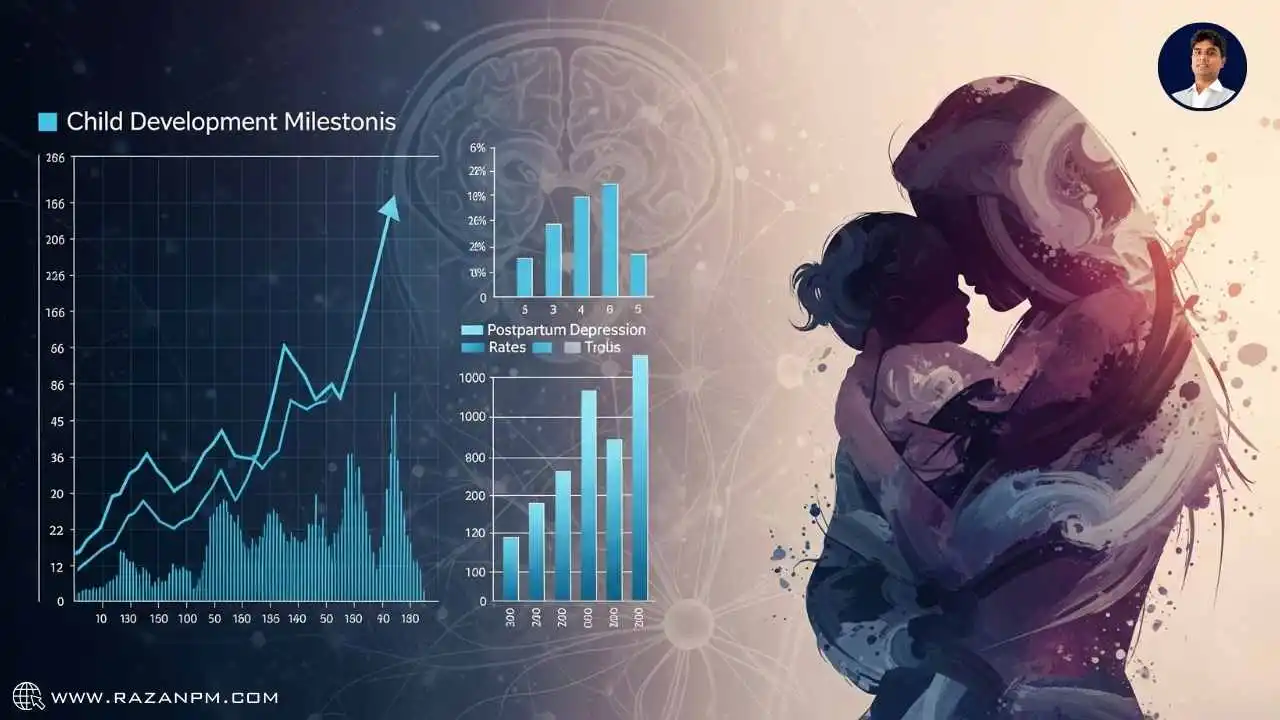Let’s start with something light. Imagine you’ve just forgotten to water a plant for two days. Suddenly, the thought pops up: “If I can’t even keep this tiny plant alive, how will I raise a child?” From there, your brain spirals into “Maybe I’m not good enough,” then “What will my family say if I don’t have children soon?” and before you know it, your heart races, your palms sweat, and you feel like you’re failing at life.
Sounds funny on the surface, right? But this is how many people slip from small, everyday thoughts into heavy emotional pressure. And when traditions, religion, and society’s expectations about parenthood come knocking, the weight can feel unbearable. also read: spot the silent signs of love your partner hides

In many cultures, parenthood is painted as the ultimate milestone of adulthood. Relatives often ask at weddings, “So, when are the little ones coming?” Religious and cultural traditions sometimes label childbearing as a duty, not a choice. And society often measures a person’s worth by whether they “settle down and have kids.”
For some, this is exciting. But for others—whether due to infertility, personal choice, financial struggles, or emotional readiness—this question becomes a daily storm. It’s not just pressure. It’s pressure layered with guilt, shame, and the fear of being judged. also read: how miscommunication in texts affects you

These moments sound ordinary, but inside, people feel guilt, anxiety, shame, and sometimes even grief. The pressure is no longer about having children - it becomes about being enough. also read: why couples hide their real feelings inrelationships

From a clinical psychology lens, what we often see fits within categories described in DSM-5 (Diagnostic and Statistical Manual of Mental Disorders) and ICD-11 (International Classification of Diseases). While “parenthood pressure” is not a diagnosis, the emotional consequences are often tied to:
These clinical frameworks help us validate that these struggles are real mental health challenges, not just “overthinking.” also read: why every gen z group needs a therapist friend

Psychological and sociological studies consistently show that societal and religious expectations strongly impact mental health.
In short, pressure around parenthood doesn’t just stay in the family living room - it seeps into mental health, relationships, and even physical well-being. also read: 2am emails & gen z work culture pressure
Let me share a heart-touching moment from my practice (details changed for confidentiality).
A woman in her early 30s, let’s call her Asha, came to therapy. Every family gathering ended with people asking, “When are you giving us good news?” Asha wanted children, but her partner wasn’t ready. She felt torn—between love for her partner and loyalty to her family’s expectations.
She once told me, tears streaming down her face, “Sometimes I wonder if I’m a disappointment to everyone. I even stopped attending weddings because I can’t handle the questions.”
Her story reflects what many silently go through. The turning point came when we worked on shifting her internal narrative—from “I must meet everyone’s expectations” to “I have the right to define my timeline.” She began using simple but powerful techniques to reshape her thoughts, manage her emotions, and build inner resilience.
Slowly, her guilt softened. Her confidence grew. And she found the courage to tell her family, “I love you, but this is my journey.” also read: gen z relationship drama the hidden truth

Now let’s talk about what works. Here’s a combined approach from psychology and practical thought-training strategies (without jargon):
Instead of letting critical thoughts run wild—
This mental reframing shifts power from others’ expectations to your self-compassion.
One technique I teach is grounding. When overwhelming thoughts strike, pause and notice:
This brings you back to the present moment instead of drowning in “what-ifs.”
Our brain often plays negative scenarios like a film reel - family judging us, feeling rejected, being labeled “selfish.” Close your eyes and imagine this movie playing on a small, blurry screen. Then shrink it until it’s tiny and far away. Replace it with a brighter movie - of you smiling, confident, and calm, surrounded by people who respect you.
This retrains the brain to link new emotions to old triggers.
I often teach clients to create an invisible shield around themselves before entering family gatherings. Visualize a soft, glowing light protecting you. When people’s words come, imagine them bouncing off without sticking to your heart. This simple exercise makes conversations less overwhelming.
Instead of dreading questions, prepare kind but firm responses:
This empowers you to set boundaries without hostility. also read: marriage anxiety among gen z couples
Pressure from traditions, religion, and expectations around parenthood is one of the most silent yet powerful sources of stress today. It’s not just about children—it’s about identity, worth, and freedom. The good news? With the right tools, you can reprogram your thoughts, strengthen your emotional resilience, and live life on your timeline.
👉 Begin Your Journey with a 1 on 1 Consultation
👉 Begin Your Journey with a 1 on 1 Consultation
